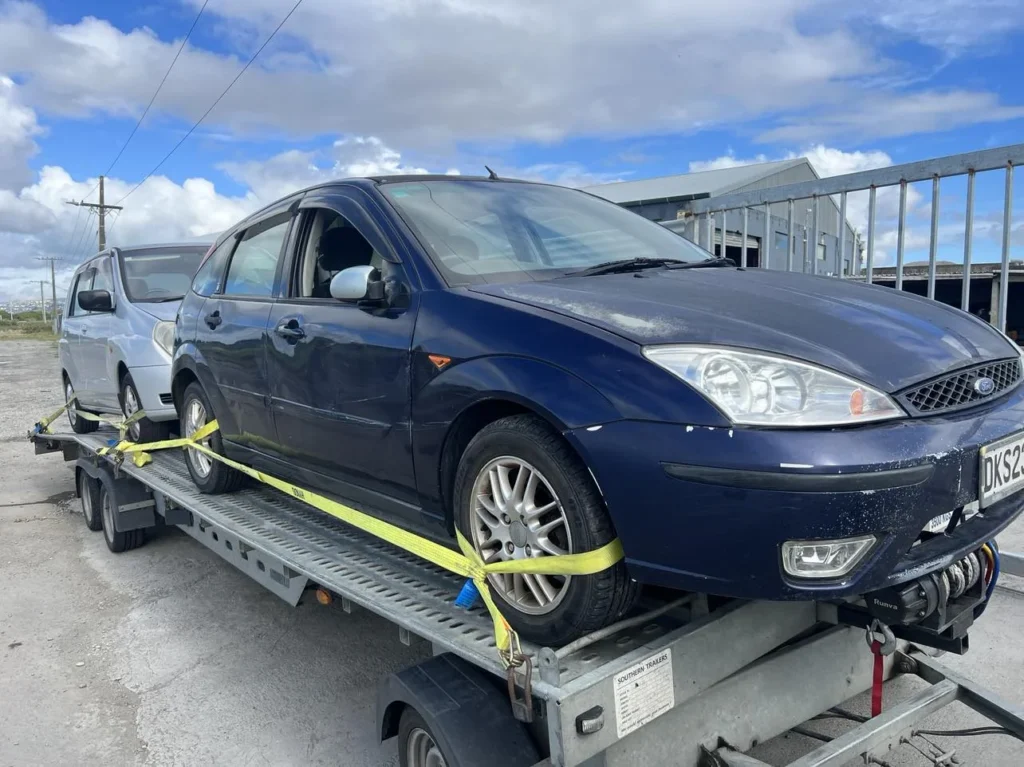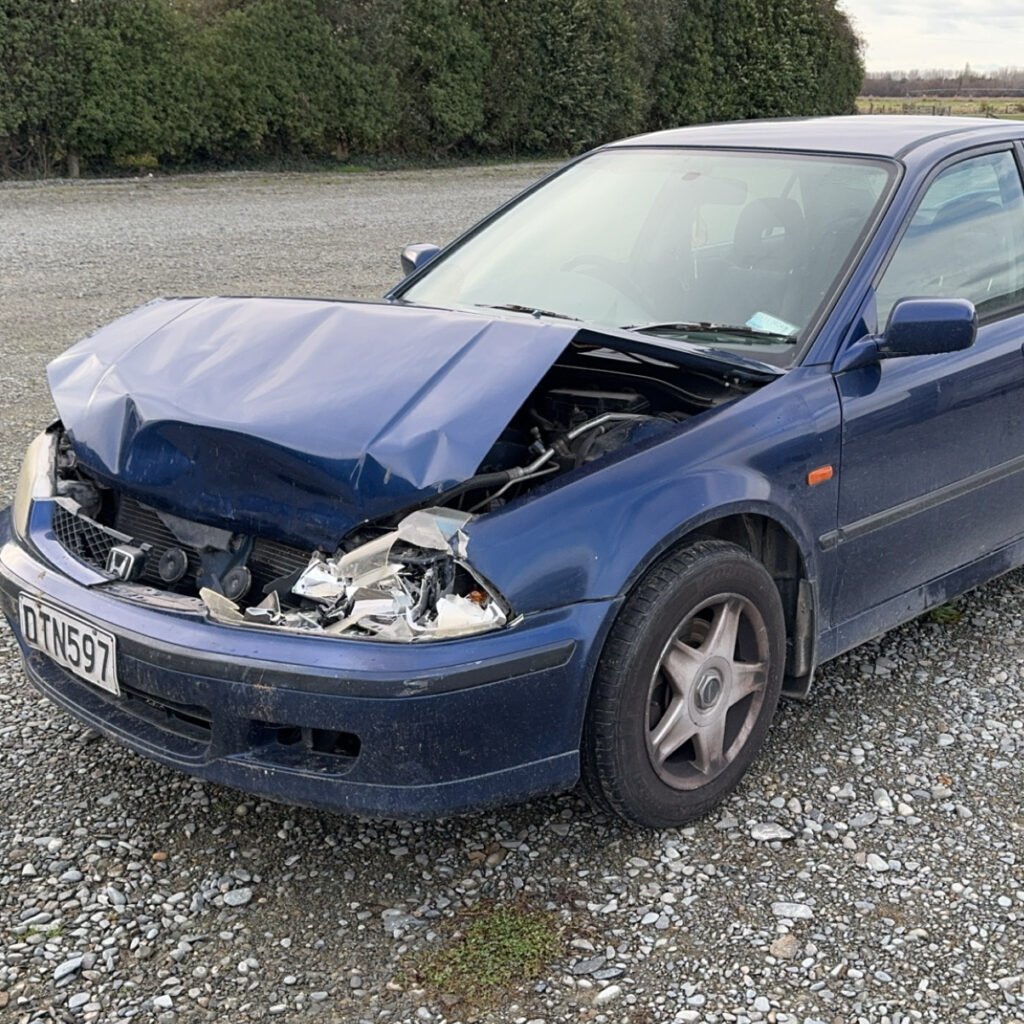Welcome to our comprehensive guide on answering the all-important question, “How much is my car worth in NZ?” Whether you’re thinking about selling, trading in, or just curious about your car’s current market value, understanding how various factors impact its worth is key to making informed decisions. In this post, we’ll walk you through everything you need to know about valuing your car, from mileage and condition to market trends specific to New Zealand. By the end of this guide, you’ll have the tools and insights to accurately assess your vehicle’s value and maximize your returns. Let’s dive in!
The value of your car in New Zealand depends on several key factors, including the make and model, age, mileage, condition, market trends, and vehicle history. To get an accurate estimate, you can use online valuation tools like Trade Me Motors, consult with dealerships, or seek independent appraisals through services like Turners Car Auctions. Keeping your car well-maintained and understanding local market demand will also help you maximize its value.
Why Knowing Your Car’s Value Matters In NZ
When it comes to owning a vehicle in New Zealand, understanding its value is crucial for several reasons. Whether you’re looking to sell, trade in, insure, or simply keep an eye on how your car’s value is changing, being aware of what your car is worth can help you make more informed decisions. Let’s explore why knowing your car’s value can make a difference and how it plays a key role in your financial and personal planning.
The Importance of Knowing Your Car’s Worth
Selling Your Car: Getting a Fair Price
If you’re planning to sell your car in New Zealand, knowing its value helps you avoid being underpaid or overpricing your vehicle, which could slow down the selling process. A well-researched car value allows you to price your vehicle competitively, making it more attractive to potential buyers. It ensures you’re getting a fair deal and can confidently negotiate when selling through private listings or even car-selling websites.
Trading-In: Maximizing Your Trade-In Value at Dealerships
Trading in your car at a dealership is another common practice, especially when you’re upgrading to a new vehicle. By knowing your car’s current market value, you’re in a stronger position to negotiate a better trade-in deal. This knowledge prevents dealerships from undervaluing your vehicle, ensuring you get the best offer possible when swapping it for a new model.
Insurance Purposes: Ensuring Adequate Coverage
Car insurance in New Zealand typically takes your vehicle’s current market value into account. Understanding how much your car is worth ensures that you have the right coverage. If your car is undervalued on your insurance policy, you might not receive enough to replace it in case of theft or total loss. On the other hand, over-insuring your car could result in higher premiums without offering any additional benefit. Keeping track of your car’s value means ensuring you’re neither overpaying nor under-covered.
Personal Finances: Tracking Depreciation or Planning for Future Upgrades
Your car is one of the most significant assets you own, and like all assets, it depreciates over time. Keeping track of your car’s value helps you monitor its depreciation, which is useful for both personal financial planning and future upgrades. Whether you’re planning to sell in a few years or upgrade to a newer model, having a clear understanding of how your car’s value is changing will allow you to plan accordingly and make smarter financial decisions.
How Much Is My Car Worth in NZ?
Whether you’re asking, “How much is my car worth in NZ for selling or trading in?”, understanding the factors that affect car value is essential. Knowing these key details can help you navigate the car market in New Zealand with confidence, ensuring you always make the most of your vehicle.

Factors That Affect Your Car’s Value In New Zealand
When it comes to determining the value of a car in New Zealand, there are several factors that play a significant role. Whether you’re looking to sell your vehicle or simply want to understand its current market value, knowing these key elements will help you make informed decisions. Below, we break down the top factors that directly influence a car’s value in the New Zealand market.
The Top Factors That Determine Car Value
Make and Model
The make and model of your car are two of the most critical aspects that determine its market value. In New Zealand, some car brands and models enjoy higher demand due to their popularity, reliability, and performance. For example, popular models like Toyota Hilux, Ford Ranger, and Mazda CX-5 often retain their value better because they are well-regarded for durability and resale demand.
Conversely, niche or less common models may experience depreciation more rapidly. This is because parts for these vehicles might be harder to source, and their appeal may not be as broad. When buying or selling a car, it’s worth researching the popularity of the make and model within New Zealand to understand how this factor impacts the car’s value.
Age and Mileage
The age of a car combined with its mileage is another key determinant of its value. In New Zealand, where drivers often traverse long distances across diverse terrains, mileage plays a significant role in evaluating a vehicle’s worth. High mileage can signal wear and tear on the engine, transmission, and other components, which could lower the value of the car.
Age, on the other hand, is an important factor, but it must be considered alongside mileage. A newer car with high mileage might be worth less than an older car with lower mileage. The interaction of these two factors can affect how much you can sell your car for. In New Zealand’s market, cars that have been well-maintained and serviced regularly, despite their age or mileage, can often fetch a higher price.
Condition of the Car
The overall condition of your car—both inside and out—plays a major role in determining its value. Buyers in New Zealand are especially keen on the car’s appearance and mechanical reliability. Any signs of wear and tear on the interior, such as upholstery damage, stained carpets, or a damaged dashboard, can detract from its value. Similarly, exterior issues like paint chips, scratches, or rust spots can lead to a reduction in price.
The car’s mechanical condition is arguably even more important. Regular servicing and prompt repairs are critical, particularly in New Zealand’s climate where salt from the sea and rugged roads can contribute to mechanical issues. If the car has a solid service history and no major repairs or ongoing mechanical problems, it is likely to retain more of its value.
Market Trends in New Zealand
Car values are also influenced by broader market trends, which can vary throughout the year. For instance, in the summer months, convertibles and other recreational vehicles tend to see an increase in demand, often leading to a bump in value. On the other hand, larger vehicles like SUVs or trucks may hold higher value during the colder, wetter months due to their practicality on New Zealand’s rugged terrain.
Fuel efficiency is another trend that is becoming increasingly important in the New Zealand market. With the growing focus on sustainability, cars with higher fuel efficiency or hybrid and electric vehicles are seeing a rise in demand, which positively impacts their value. As government incentives for electric vehicles become more prominent, the demand for these cars is expected to grow even further.
Modifications and Upgrades
In New Zealand, the effect of modifications and upgrades on a car’s value can go either way, depending on the type of modifications made and the preferences of potential buyers. Some buyers prefer stock, unmodified vehicles due to concerns over insurance costs or potential performance issues caused by aftermarket parts.
However, certain upgrades—such as enhanced safety features, modern infotainment systems, or performance improvements—might increase the value of the vehicle. It’s essential to understand the local market preferences before making any modifications, as not all enhancements will yield a positive return on investment when it comes time to sell.
Vehicle History
The history of your vehicle is crucial when determining its value. Buyers will be wary of cars that have been in accidents, had major repairs, or experienced frequent mechanical issues. In New Zealand, services such as VINZ (Vehicle Inspection New Zealand) and CarJam can help verify a car’s history, providing potential buyers with a detailed account of any incidents, previous ownership, and service records.
A clean vehicle history, free of accidents or significant repairs, will help maintain or even boost your car’s value. In contrast, cars with a history of accidents or major mechanical issues will likely see their value decrease, as buyers are cautious about future problems.
Several factors contribute to determining your car’s value in New Zealand, and understanding each of these is essential for anyone looking to buy or sell a vehicle. From the make and model to market trends and the car’s condition, these elements combine to shape the worth of your vehicle. By staying informed about these factors, you can better navigate the car market and ensure you’re getting the best value for your vehicle.

Tools And Resources To Help You Value Your Car In NZ
When you’re ready to sell your car in New Zealand, one of the first questions that comes to mind is, “How much is my car worth?” Getting a reliable estimate is crucial, whether you’re planning to sell privately, trade it in, or simply want to understand its market value. Below, we’ll explore some of the best tools and resources available to help you accurately value your car in NZ.
Where Can I Get a Reliable Estimate for My Car’s Worth in NZ?
Valuing your car doesn’t have to be a guessing game. In New Zealand, several platforms and services can help you determine your car’s market value based on various factors like make, model, age, mileage, and condition. Here’s a breakdown of the main options available.
Online Valuation Tools
One of the quickest and most convenient ways to get an estimate of your car’s worth is by using online valuation tools. These platforms pull data from a wide range of listings and market transactions to give you a ballpark figure of your car’s current value.
- Trade Me Motors: As one of the largest car trading platforms in New Zealand, Trade Me Motors is a go-to site for both buyers and sellers. They offer an in-depth car valuation tool that considers recent sales of similar vehicles, giving you a rough estimate based on actual market data. Simply enter your car’s details like make, model, year, and condition to receive a valuation.
- Autotrader: Another reliable option, Autotrader NZ, offers users a chance to check prices of similar listings and provides a basic valuation tool to help sellers understand their car’s potential worth.
- Cars.co.nz: This platform allows users to compare prices of cars currently listed for sale in New Zealand. By analyzing cars that match your vehicle’s description, you can get an approximate idea of how much your car could sell in the open market.
These tools are user-friendly and can provide a useful starting point, but remember, they rely on data trends and may not always account for specific conditions affecting your car, such as recent repairs or custom features.
Car Dealership Valuations
If you’re considering trading in your car, many NZ dealerships will provide you with a trade-in valuation. Dealerships usually assess the car’s age, mileage, condition, and market demand to offer a trade-in price.
- How Dealerships Assess Trade-In Value: Dealerships typically have in-house experts who will inspect your car, take it for a test drive, and evaluate its resale potential. They’ll check for any mechanical issues, or signs of wear and tear, and even consider the car’s brand reputation when determining a trade-in value.
- Pros and Cons of Relying on a Dealership’s Quote: One of the major advantages of getting a valuation from a dealership is convenience. You can trade in your old car and drive away with a new one on the same day. However, keep in mind that dealerships often offer lower prices compared to private sales, as they need to factor in their own margins and potential repair costs before reselling the car.
While a dealership’s quote can be useful for getting a quick, hassle-free sale, it’s a good idea to compare this with other valuation methods before making a decision.
Independent Car Valuation Services
For a more objective and thorough assessment, you might want to consider an independent car valuation service.
- Turners Car Auctions: As New Zealand’s largest seller of used vehicles, Turners offers professional vehicle appraisal services. Unlike a dealership, Turners’ valuation is purely based on market factors, providing a more neutral estimate of your car’s worth. This is ideal if you want a third-party opinion, especially if you’re unsure whether a trade-in offer is fair.
- Objectivity in Valuation: Independent services are less likely to be biased since they are not purchasing your vehicle directly. This can help you gain a clearer understanding of its true market value, which can then be used to negotiate a better price when selling privately or to a dealer.
Comparing Prices on Marketplaces
Another effective strategy to gauge your car’s value is to compare it to similar vehicles currently for sale in New Zealand. Popular platforms like Trade Me and Facebook Marketplace allow you to see what others are selling comparable cars for.
- Analyzing Current Listings: When checking these listings, look for vehicles that match your car’s make, model, year, mileage, and condition. Pay attention to the prices set by sellers and the duration that listings remain unsold, as this can indicate whether the asking price is realistic.
- Location and Demand Impact: It’s also important to factor in the location of the car. For example, vehicles in urban centers like Auckland or Wellington may fetch higher prices due to greater demand, while those in rural areas might take longer to sell or may need to be priced lower. This variation can also be influenced by the specific type of car—larger vehicles like SUVs may be more popular in rural areas, whereas smaller, fuel-efficient cars could be in higher demand in cities.
Valuing your car in New Zealand doesn’t have to be complicated. By using a combination of online tools, dealership valuations, independent services, and marketplace comparisons, you can get a comprehensive understanding of your car’s worth. Whether you’re planning to trade it in, sell it privately, or simply want to know its market value, these resources provide reliable insights to help you make an informed decision. Always remember to compare multiple sources to ensure you’re getting the best possible price for your car.

Steps To Increase The Value Of Your Car Before Selling
If you’re looking to sell your car or trade it in, it’s crucial to maximize its value to get the best possible price. Whether you’re planning to upgrade or simply want to offload your vehicle, following a few simple steps can significantly increase your car’s resale value. Below are some proven strategies to enhance your car’s appeal and command a higher price from potential buyers.
Fix Minor Cosmetic Issues
Before listing your car for sale, take the time to fix any minor cosmetic issues that could detract from its appearance. These seemingly small imperfections, such as dents, scratches, or chipped paint, can give buyers the impression that the vehicle wasn’t well cared for, potentially lowering its value.
- Dent Repairs and Paint Touch-Ups: If your car has minor dents or paint blemishes, getting these fixed can make a significant difference. It’s a small investment that can pay off by boosting your car’s overall aesthetic appeal.
- Replacing Worn-Out Parts: This includes things like worn-out wipers, cracked mirrors, or faded headlights. Addressing these small details can make your vehicle look fresher and more attractive to buyers.
Full Service and Maintenance Check
One of the easiest ways to increase your car’s value is by ensuring it’s in top mechanical condition. Buyers are more inclined to pay a premium for a car that’s well-maintained and has up-to-date servicing records.
- Warrant of Fitness (WOF): In New Zealand, having a current WOF is essential. A fresh WOF shows that the car is roadworthy and that the seller has taken the time to ensure it meets safety standards. This alone can make your vehicle more desirable.
- Regular Servicing: Scheduling a full service before selling your car gives buyers peace of mind that they won’t need to spend money on immediate repairs. A recent service indicates that the car has been well looked after, which often leads to a higher resale value.
Cleanliness Matters
First impressions count, and a clean car is much more appealing to buyers than one that looks neglected. Both the interior and exterior cleanliness of your car play a crucial role in how buyers perceive its value.
- Professional Detailing: While a simple wash and vacuum can help, investing in professional detailing takes it to the next level. Detailers will clean every nook and cranny, shampoo carpets, polish surfaces, and make the exterior gleam like new. This level of cleanliness not only improves your car’s appearance but also makes it more attractive in photos, which is key to drawing interest online.
- Interior Refresh: Ensure that the inside of your vehicle is free from stains, odors, and clutter. A tidy, fresh-smelling car is much more inviting and can help buyers imagine themselves driving it.
Gather All Documentation
Having all the relevant paperwork ready when you sell your car is a huge plus for potential buyers. Documentation builds trust and reassures buyers that the car has been properly cared for.
- Service History and WOF Records: A well-documented service history shows that you’ve taken care of regular maintenance, which is something many buyers look for. It reassures them that they’re buying a reliable vehicle.
- Receipts for Major Repairs: If your car has had significant repairs, such as a new transmission or brake work, having receipts for these can help justify a higher asking price. Buyers appreciate knowing what work has been done, and it demonstrates transparency on your part.
Timing Your Sale
Believe it or not, the timing of your sale can also impact the price you get for your car. Different seasons and market conditions can affect demand for certain types of vehicles.
- Best Time of Year to Sell in NZ: If you’re selling in New Zealand, consider the seasonal demand for different vehicles. For example, SUVs and 4WDs tend to sell better in the winter months when people are looking for vehicles suited for harsher driving conditions. On the other hand, convertibles and smaller, fuel-efficient cars may fetch a higher price in the summer when the weather is warmer, and people are planning road trips. Understanding these trends can help you choose the best time to sell, maximizing your car’s value.
By following these simple yet effective steps, you can significantly increase the value of your car before selling or trading it in. Small cosmetic fixes, thorough service, cleanliness, proper documentation, and good timing can all add up to a better sale price. Taking the time to make these improvements not only helps you attract more buyers but also positions you to negotiate a better deal. After all, a well-maintained and well-presented vehicle is always more likely to command top dollar.

Common Mistakes To Avoid When Valuing Or Selling Your Car
When it comes to selling your car, avoiding common pitfalls can save you both time and money. Valuing your vehicle correctly is crucial for getting a fair deal, but many sellers fall into the same traps. This section highlights key mistakes to avoid and offers practical tips to help you assess your car’s value accurately.
Watch Out for These Pitfalls When Assessing Your Car’s Value
Relying on One Source for Valuation
One of the most common mistakes people make is relying on just one source to determine their car’s value. Whether it’s an online tool, a dealership estimate, or advice from a friend, placing all your trust in a single opinion can lead to inaccurate pricing.
Why is this a problem? Because car valuations can vary depending on factors like the condition of the vehicle, market demand, and regional differences. By consulting multiple sources, such as online car valuation tools, dealer quotes, and private sales, you can get a more comprehensive view of your car’s worth. It ensures that you neither undervalue nor overestimate your vehicle, helping you set a fair and competitive price. Remember, knowledge is power when it comes to car sales.
Not Understanding Depreciation
Depreciation is a car seller’s worst enemy. Many people are unaware of how quickly vehicles lose their value, which can lead to unrealistic expectations when it’s time to sell. On average, cars lose about 15-20% of their value each year during the first few years of ownership. By the fifth year, your vehicle could be worth as little as 40-50% of its original purchase price.
For Kiwis, it’s especially important to understand that certain factors—like the type of car, its brand, and market trends—can significantly impact depreciation. For instance, fuel-efficient cars may hold value better in the face of rising fuel prices, while luxury vehicles tend to depreciate faster. If you’re unaware of these trends, you may find yourself either overpricing a car that has depreciated significantly or accepting a low offer for a vehicle that’s still holding its value.
Overpricing or Underpricing Your Car
Emotional attachment often leads sellers to overprice their vehicles, especially if they have fond memories of road trips or first milestones attached to the car. However, buyers don’t share that sentiment—they’re strictly looking at the car’s market value. Overpricing can drive away potential buyers, prolong the selling process, and eventually force you to lower the price, sometimes even below what you could have gotten with a realistic listing initially.
On the flip side, underpricing your car can be just as harmful. It might seem like a quick way to sell, but you could end up leaving money on the table. To avoid both mistakes, take an objective approach when setting your price. Research comparable listings in the New Zealand market, taking into account your car’s make, model, age, and condition. By setting a competitive price based on market realities rather than emotions, you can attract serious buyers and make the sale quicker.
Ignoring Current Market Trends
The car market is constantly evolving, and factors like fuel prices, environmental concerns, and economic conditions play a big role in determining a vehicle’s value. For example, if fuel prices are on the rise, buyers may gravitate towards fuel-efficient or hybrid vehicles, which could boost the value of those models. Similarly, with growing awareness around climate change, electric vehicles (EVs) are gaining popularity, and their value may rise as demand increases.
Economic downturns or surges can also affect car sales. In tough economic times, people may be less willing to spend on new cars, which can push up the value of affordable used vehicles. Keeping an eye on these market trends ensures that you’re not caught off guard by sudden shifts in car values.
Before you sell, make sure to stay informed about the broader market conditions. Check recent sales data, talk to industry experts, and follow news about economic and environmental trends. This knowledge can help you set a price that aligns with the current demand and avoids underselling or overpricing your car.
By avoiding these common mistakes, you’ll be better positioned to sell your car at a fair price while minimizing the time it spends on the market. Accurate valuations and an understanding of market dynamics are crucial steps toward a successful car sale in New Zealand.

Selling Your Car In NZ – Private Sale Vs Trade-In
When it comes to selling your car in New Zealand, there are several options to consider, each with its own set of advantages and challenges. Whether you’re aiming for the best possible price or looking for the quickest, most convenient way to sell, your decision will largely depend on your priorities and circumstances. In this guide, we’ll explore three popular methods: private sales, trading in at a dealership, and selling via auction.
What’s the Best Way to Sell Your Car in New Zealand?
There’s no one-size-fits-all answer to this question, as the best way to sell your car depends on factors like how much time you have, your willingness to handle the selling process, and the price you’re hoping to achieve. Let’s dive into the pros and cons of each option.
Private Sales
Selling your car privately is often the go-to option for people looking to maximize the value of their vehicle. By cutting out the middleman, you can usually sell your car for more than what a dealership would offer. However, this method does come with its own challenges.
Advantages of Private Sales:
- Higher Sale Price: The biggest perk of selling privately is that you’re likely to get the best possible price. Since there’s no dealership markup or fees, you’re in control of the final sale price.
- Direct Negotiation: You have the power to negotiate directly with potential buyers, which can give you more control over the sale.
Challenges of Private Sales:
- Time-Consuming: Finding the right buyer can take time. You’ll need to advertise your car, respond to inquiries, and arrange viewings and test drives.
- Effort and Management: It’s not just about listing the car online. You’ll need to manage appointments with potential buyers and deal with the administrative tasks of transferring ownership.
- Dealing with Potential Buyers: Some buyers might try to haggle or offer significantly lower prices than what your car is worth. You’ll need to be patient and prepared to negotiate.
Trading-In at a Dealership
If convenience is your top priority, trading in your car at a dealership might be the best option. This method allows you to quickly offload your vehicle, especially if you’re purchasing a new one from the same dealer. But while it’s fast and easy, you may not get the best financial return.
Advantages of Trading In:
- Speed and Convenience: The process of trading in is usually quick. You can often drive your old car to the dealership and leave with your new car on the same day.
- No Hassle: The dealership handles all the paperwork, so you don’t have to worry about advertising your car, meeting with potential buyers, or handling the transfer of ownership.
- Good Option for Unwanted Cars: If your car is older or in less-than-perfect condition, trading in can save you the trouble of finding a private buyer willing to take on the vehicle.
Downsides of Trading In:
- Lower Offer: Dealerships typically offer less for a trade-in than you’d get from a private sale. The convenience comes at a cost, as dealers need to factor in their own markup and reconditioning expenses.
- Limited Negotiation: You may have less room to negotiate the trade-in value compared to selling privately.
Selling via Auction
Selling your car through an auction house, such as Turners Auctions, offers a middle ground between private sales and dealership trade-ins. Auction sales can be an effective way to sell a car quickly while still getting a competitive price, though there are some risks involved.
How Turners Auctions Work:
- Listing Your Car: You’ll need to register your car with the auction house, and they’ll handle the sale process on your behalf.
- Auction Day: On the day of the auction, potential buyers place bids on your car, and the highest bidder wins the sale.
- Fees: Auction houses usually charge a fee for selling your car, which can cut into your final profit.
Pros of Selling via Auction:
- Potential for a Competitive Price: If your car attracts a lot of interest, you might secure a higher price than you would from a trade-in.
- Quick Sale: Auctions offer a fast turnaround, making them a good option if you want to sell your car promptly.
- Less Effort on Your Part: The auction house handles much of the legwork, from advertising to managing the sale, so it’s a convenient option.
Cons of Selling via Auction:
- Uncertainty: There’s no guarantee that your car will sell for the price you want. The final selling price depends on how many buyers are interested and how high the bids go.
- Auction Fees: Auction houses take a commission or fee from the final sale price, which can reduce your overall earnings.
Which Selling Method is Right for You?
Choosing the best way to sell your car in New Zealand depends on your personal preferences and circumstances. If maximizing profit is your priority and you’re willing to put in the effort, a private sale might be your best bet. However, if convenience and speed are more important, trading in at a dealership or selling through an auction could be the better options. Ultimately, understanding the pros and cons of each method will help you make the right decision for your situation.

FAQs: About How Much Is My Car Worth NZ
How can I find out how much my car is worth in NZ?
What factors influence my car’s value in New Zealand?
Do modifications increase or decrease a car’s value in NZ?
How does mileage affect car value in NZ?
Is it better to sell my car privately or trade it in at a dealership?
How often should I check my car’s value?
Does having a current Warrant of Fitness (WOF) increase my car’s value?
What’s the best time to sell my car in NZ?
Can I negotiate with a dealership on their trade-in offer?
What documents should I have when selling my car?
Conclusion
In conclusion, determining your car’s value in New Zealand requires a solid grasp of the current market, as well as an understanding of key factors such as mileage, overall condition, and the use of reliable valuation resources. Whether you’re looking to sell, trade in, or simply monitor your vehicle’s worth, staying informed is essential to making the best decisions. Utilize online valuation tools or visit a dealership to get an accurate assessment and take the next step toward maximizing your car’s potential value today.




